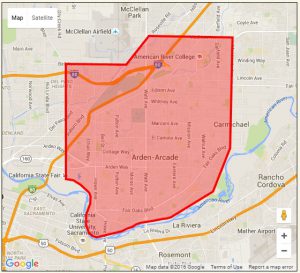The wildfire in El Dorado and Placer counties has now burned 5,044 acres and 20 percent contained, according to Cal Fire officials Sunday.
About 2,600 structures are threatened by the fire but none were reported damaged or destroyed by the fire so far, officials said.
Fire crews continue to monitor fire lines, hoping to slow down the so-called Trailhead Fire, especially near the Volcanoville area.
The containment lines held overnight in Placer County, where fire crews patrolling and monitoring fire lines, officials said. Residents in Todd Valley remain under voluntary evacuation.
Placer County mandatory evacuations have been downgraded to voluntary: Only residents with photo ID will be allowed beyond the staffed roadblocks. All homes east of Green Ridge Road to Oakwood Lane to Nugget Drive, Skyview Terrace Mobile Home Park, Oak Wood Court, Vinewood Court, Trail Head Court, Green Pine Court, Alton Trail Court, Gray Court, Tevis Court and White Tail Court and homes to the west of the above.
As for road closures in Placer County, Nugget Drive and Oakwood Lane are restricted to residents only, officials said.
The favorable temperatures overnight helped fire crews maintain containment lines on the El Dorado County side of the Trailhead Fire, Cal Fire said.
Crews have completed the line from west of Jakeys Hill, west to Buckeye Point and eventually to the American River, officials said. Several spot fires occurred Saturday night but firefighters were able to stop them and hold the fire at the river. Crews will continue to monitor Sunday.
In the Volcanoville area, fire crews are continuing to strengthen the fire lines west of the community in areas around Volcanoville, Kentucky Flat and Bottle Hill, officials said. There is still a mandatory evacuation order in effect for those areas.
The only campground directly affected by the fire is Dru Barner in the Georgetown Ranger District, which is within the fire closure area, Cal Fire said. No roads or campgrounds are closed in the Tahoe National Forest due to this fire.
Access to the middle fork of the American River from the Oxbow Reservoir put-in and Ruck-A-Chucky take-out is temporarily closed, officials said.
More at KCRA.com >>>

